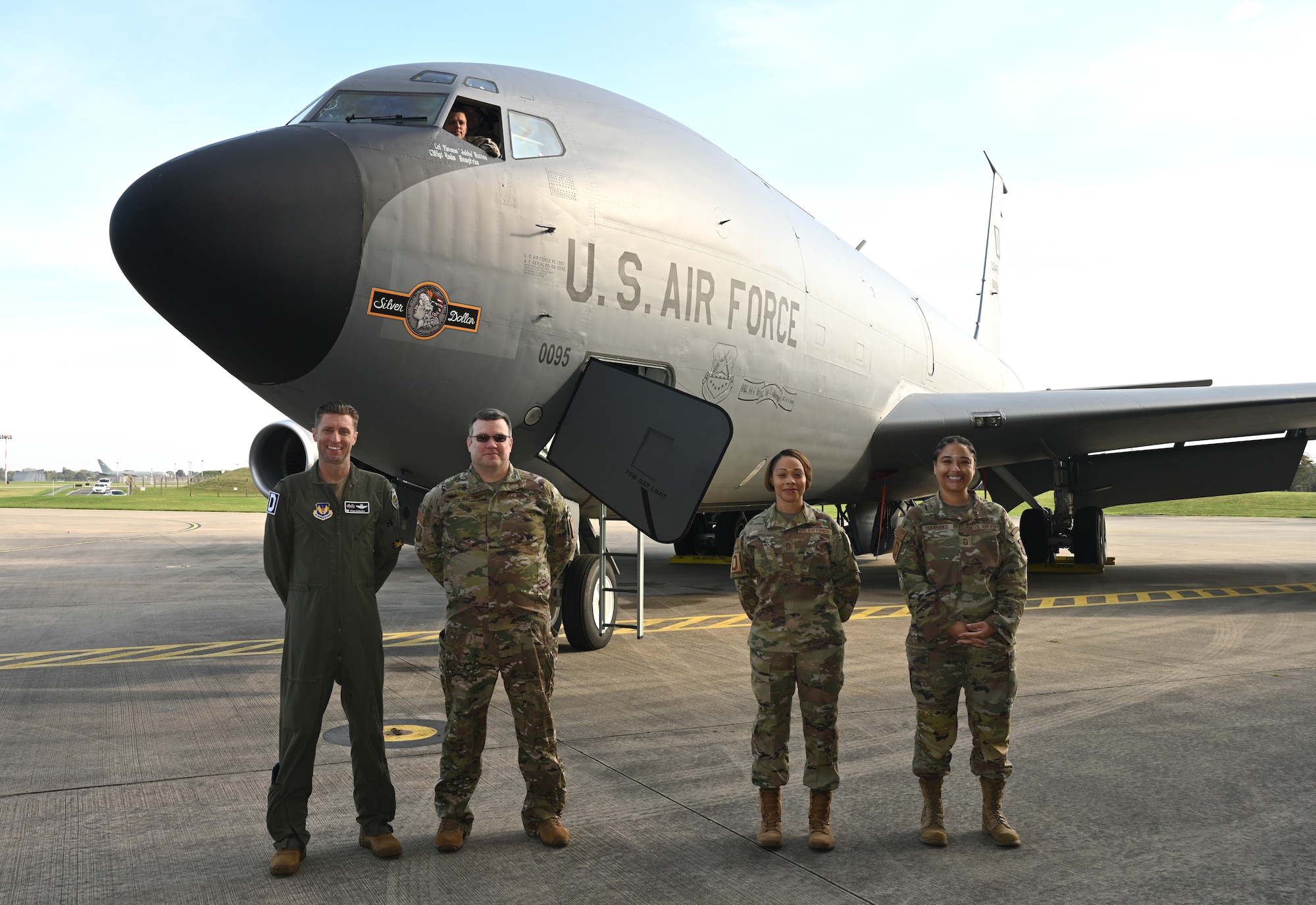Double towing, or towing two trailers simultaneously, is not permitted in Texas according to state law. The practice is prohibited to ensure road safety and prevent accidents.
Double towing, which involves towing two trailers together, is a popular method for transporting multiple types of cargo. However, in the state of Texas, this practice is strictly regulated and not allowed. The Texas law prohibits double towing for various reasons, primarily aimed at ensuring road safety.
This restriction prevents accidents and minimizes the risks associated with having two trailers behind a vehicle. It is crucial to understand and comply with the specific towing regulations in Texas to avoid any legal consequences and ensure the safety of yourself and others on the road. In the following sections, we will explore the details of double towing laws in Texas, including the limitations, exceptions, and potential penalties for non-compliance.

Credit: www.texastintmasters.com
The Basics Of Double Towing
When it comes to hauling additional trailers behind your vehicle, it’s important to understand the basics of double towing. Whether you’re planning a camping trip or need to transport multiple items, double towing can provide the extra space you need. In this blog post, we’ll explore what double towing is, the legal considerations you should be aware of, and some essential tips to ensure a safe and successful venture.
What Is Double Towing?
Double towing, often referred to as triple towing or tandem towing, involves pulling two trailers simultaneously. This setup consists of a towing vehicle, a primary trailer attached directly to the vehicle’s hitch, and a secondary trailer attached to the back of the primary trailer. It’s important to note that not all vehicles and trailers are suitable for double towing. Before embarking on your journey, make sure to check your vehicle’s towing capacity and the regulations specific to your state.
Legal Considerations
When engaging in double towing in Texas, it’s crucial to be aware of the legal considerations to ensure compliance with state regulations. Here are some key points to keep in mind:
- Length Restrictions: According to Texas law, the combined length of the towing vehicle and the primary trailer should not exceed 65 feet. Additionally, the secondary trailer must not exceed 28 feet in length.
- Proper License: Operators engaging in double towing must possess the appropriate class of driver’s license. In Texas, a Class A non-commercial driver’s license is necessary when the combined weight of the trailers exceeds 26,000 pounds.
- Safety Equipment: Ensure that all trailers are equipped with functional brake lights, turn signals, and rearview mirrors to maintain visibility and communicate intentions effectively.
It’s important to note that regulations may vary by state, so it’s essential to research and adhere to the specific guidelines of the states you will be traveling through during your double towing journey.
Requirements For Double Towing In Texas
When it comes to towing in Texas, it’s important to understand the specific requirements for double towing. Double towing, also known as tandem towing or recreational double towing, is the act of towing two trailers or vehicles simultaneously behind a single towing vehicle. However, before hitting the road, it’s crucial to be aware of the necessary special license endorsements and equipment requirements that must be met in order to legally engage in double towing in Texas.
Special License Endorsements
In order to legally tow two trailers or vehicles simultaneously in Texas, you must possess the appropriate special license endorsements. These endorsements signify that you have successfully completed the necessary training and have demonstrated the ability to safely maneuver a double-towed rig on the road. There are two types of endorsements available:
- The Non-Commercial Class A License: This endorsement is required for tow vehicles and trailers with a combined weight rating (GVWR) of over 26,000 pounds. It allows you to tow multiple trailers with a maximum total length of 65 feet.
- The Commercial Class A License: This endorsement is required for tow vehicles and trailers with a combined weight rating (GVWR) of over 26,000 pounds, and for commercial purposes. With this endorsement, you are permitted to tow multiple trailers with a maximum total length of 65 feet, just like the non-commercial license.
Equipment Requirements
Having the appropriate equipment is crucial when double towing in Texas. In addition to meeting the licensing requirements, your towing vehicle must also comply with the following equipment specifications:
- Proper Hitching System: The primary trailer must be securely connected to the towing vehicle using a fifth-wheel hitch or a gooseneck hitch, depending on the design of your setup.
- Towing Capacity: The towing vehicle must have sufficient power to safely pull the weight of both trailers, taking into consideration the combined gross vehicle weight rating (GVWR) of all vehicles involved.
- Braking System: A properly functioning and approved braking system is required for both trailers. This ensures that you are able to stop safely and effectively.
- Lighting and Reflectors: All trailers being towed must have appropriate lighting and reflectors that meet safety regulations. This allows other drivers to see your entire rig clearly, especially during nighttime travel.
- Trailer Length Restrictions: The total length of both trailers, when connected, must not exceed 65 feet. This includes the length of the towing vehicle as well.
By fulfilling the necessary special license endorsements and equipment requirements, you can ensure a safe and legal double towing experience in Texas. Make sure to comply with these guidelines and enjoy your journeys knowing that you are towing within the bounds of the law.
Safety Measures While Double Towing
Safety is paramount when double towing in Texas, where following the proper safety measures can prevent accidents. It’s essential to pay attention to Safety Measures While Double Towing to ensure a smooth and secure journey.
Proper Weight Distribution
When double towing in Texas, ensure balanced weight distribution between all vehicles to maintain stability on the road.
Towing Speed
Maintain a moderate and safe towing speed to handle the additional length and weight, preventing swaying and instability.

Credit: www.facebook.com
Tips And Best Practices
When towing in Texas, following certain tips and best practices is essential to ensure safety and compliance with the law. From conducting a thorough pre-trip inspection to effectively maneuvering challenges on the road, there are key factors to consider when double towing in Texas. Here are some important tips and best practices to keep in mind:
Pre-trip Inspection
Before hitting the road, it’s crucial to perform a comprehensive pre-trip inspection to ensure the safety of your equipment and the vehicles being towed. This includes checking the hitch connections, trailer lights, tire conditions, and brake mechanisms. Failure to conduct a proper pre-trip inspection can result in dangerous situations on the road.
Maneuvering Challenges
Double towing presents unique challenges, especially when maneuvering through tight spaces or making turns. When navigating through crowded areas or backing up, it’s important to maintain ample distance between the vehicles to minimize the risk of collisions.
Common Mistakes To Avoid
When double towing in Texas, it’s crucial to be aware of the common mistakes that can lead to safety hazards and legal issues. Avoiding these mistakes can ensure a smoother and safer towing experience on Texas roads.
Overloading
Overloading the vehicles being towed is a common mistake that can lead to loss of control, tire blowouts, and structural damage. It’s essential to adhere to the weight limits specified by the manufacturer for both the towing vehicle and the trailers. Exceeding these limits not only compromises safety but also violates Texas towing regulations.
Inadequate Hitching
Inadequate hitching is another mistake that can result in accidents and damage to the vehicles. Failing to properly secure the hitch connections can lead to the trailers becoming uncoupled while in motion. This can have dangerous consequences, especially at higher speeds on Texas highways. It’s critical to double-check the hitch connections and use safety chains as an additional precaution.
Emergency Protocols
Braking Safely
Braking safely is vital when double towing in Texas to prevent accidents.
Dealing With Sway
Dealing with sway is crucial to maintain control of the vehicles.
Stay calm and slow down gradually if sway occurs.
- Check tire pressure regularly
- Ensure even weight distribution
- Properly hitch the trailers
Practice emergency braking maneuvers in a safe area.
| Key Points |
|---|
| Regularly inspect brakes and tires |
| Adjust driving speed based on road conditions |
| Utilize trailer brakes effectively |
Double Towing Etiquette
Double towing in Texas requires adherence to proper etiquette to ensure safety on the road. Understanding the guidelines and regulations helps drivers navigate this practice legally and responsibly.
Double Towing Etiquette When it comes to double towing in Texas, understanding and following proper etiquette is essential for a safe and smooth driving experience. Double towing, also known as tandem towing, involves pulling two trailers or vehicles behind a single towing vehicle. While it can be a convenient way to transport multiple items or vehicles, it is important to adhere to certain guidelines to ensure the safety of yourself and others on the road.Sharing The Road
Sharing the road with other drivers should always be a top priority when double towing. Here are some important tips to keep in mind: 1. Maintain a safe distance: Keep a safe distance between your towing vehicle and other vehicles on the road. This allows everyone enough time and space to react to unexpected situations or changes in traffic. 2. Use designated lanes: Whenever possible, use designated lanes for towing vehicles. This helps minimize disruptions and allows other drivers to anticipate and navigate around you more easily. 3. Be mindful of speed limits: Always adhere to the posted speed limits, or drive at a speed suitable for the road conditions. Excessive speed can be dangerous when towing multiple trailers.Communication With Other Drivers
Clear and effective communication with other drivers is crucial when double towing in Texas. Consider the following tips for better communication: 1. Use turn signals: Before changing lanes, merging, or making a turn, always use your turn signals to alert other drivers of your intentions. This helps ensure everyone on the road can anticipate your movements. 2. Use hazard lights when necessary: If you need to slow down or stop suddenly, activate your hazard lights to communicate this to other drivers. This will help prevent rear-end collisions and allow other drivers to react accordingly. 3. Use caution when overtaking: If you need to pass slower vehicles, do so with caution. Check for clear visibility, use your turn signals, and make sure there is enough space to safely complete the maneuver. Following these simple guidelines for double towing etiquette will ensure a safer and more enjoyable experience for yourself and other drivers on the road. Remember, maintaining open communication, sharing the road responsibly, and prioritizing safety should always be your top priorities while double towing in Texas.
Credit: www.mildenhall.af.mil
Frequently Asked Questions On Double Towing In Texas
Is Double Towing Legal In Texas?
Yes, double towing is legal in Texas with certain regulations and restrictions. You must obtain a permit and adhere to specific safety requirements for double towing within the state.
What Are The Regulations For Double Towing In Texas?
In Texas, regulations for double towing include obtaining a special permit, adhering to specific length restrictions, and ensuring the proper use of safety chains.
What Vehicles Are Allowed For Double Towing In Texas?
In Texas, vehicles allowed for double towing include passenger vehicles, recreational vehicles, and trucks, as long as they meet all required safety regulations and restrictions.
What Safety Precautions Should Be Followed When Double Towing?
When double towing in Texas, it is crucial to ensure proper weight distribution, use safety chains, perform regular equipment checks, and adhere to speed limits and traffic regulations.
Conclusion
In Texas, double towing regulations are critical for safety and adherence to the law. Understanding the rules and guidelines can prevent accidents and legal issues. Stay informed and comply with Texas laws for double towing to have a smooth and secure travel experience.
Drive safely!